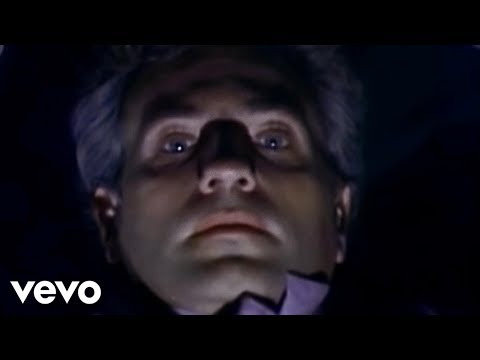The Mr. Robot soundtrack is a masterpiece on its own. It not only complements the show’s dark and mysterious tone, but it also contains hidden references that can be easily missed. These references range from song titles, lyrics, and even the choice of instrumentals. They add layers to the show’s already complex narrative and make for an even more immersive experience. In this article, we will delve into some of the most interesting hidden references in the Mr. Robot soundtrack that will make you want to listen to it over and over again. From the use of classical music to the incorporation of pop songs, the Mr. Robot soundtrack is a treasure trove of hidden gems waiting to be discovered.
Discover the Iconic Movie Referenced in Mr Robot: Unveiling the Mystery!
Mr. Robot is a television series that has gained a lot of popularity in recent years. The show has an amazing soundtrack that is full of hidden references to various movies and songs. If you are a fan of the show, you might have noticed some of these references while watching the episodes. However, there is one iconic movie reference that many people might have missed.
The Mystery
If you are a true fan of Mr. Robot, you must be wondering what this mystery is all about. The answer is simple: the iconic movie reference is to the movie Fight Club. If you haven’t watched this movie, you should definitely check it out.
For those who have watched Fight Club, you might have noticed some similarities between the movie and Mr. Robot. The main character in both the movie and the show suffers from a mental illness and has a split personality. In Mr. Robot, the main character Elliot talks to his imaginary friend, Mr. Robot. In Fight Club, the main character talks to his alter ego, Tyler Durden.
The Hidden References
There are many hidden references to Fight Club in Mr. Robot. For example, the name of the main character Elliot is a reference to the main character in Fight Club, who is also named Tyler Durden. In addition, the character of Mr. Robot is similar to Brad Pitt’s character in Fight Club. Both characters are charismatic and have a rebellious nature.
Another reference to Fight Club in Mr. Robot is the use of the song «Where is My Mind» by the Pixies. This song was also used in the final scene of Fight Club.
Conclusion
If you are a fan of Mr. Robot, you should definitely watch Fight Club. The two works of art share many similarities, and the movie has had a huge impact on the show’s creators. Once you watch the movie, you will notice even more hidden references in the show’s soundtrack.
Discover the Mystery Music at the End of Mr Robot: Unraveling the Enigma
If you’re a Mr. Robot fan, you know that the show’s soundtrack is just as important as the plot itself. From the opening theme to the end credits, the music sets the tone for each episode and enhances the overall experience. However, there is one piece of music that stands out among the rest: the mysterious track that plays during the final moments of the series finale.
The track in question is titled «Mr. Robot Suite 4,» and it was composed by Mac Quayle, the show’s Emmy-winning composer. What makes this track so intriguing is that it contains a hidden message that ties in with the show’s overarching theme of unraveling enigmas.
The first clue to the mystery lies in the track’s title. «Mr. Robot Suite 4» implies that there are at least three other suites that came before it. Upon further investigation, fans discovered that the previous suites were featured in earlier episodes and contained references to key plot points, such as the reveal of Elliot’s alter ego, Mr. Robot.
But what about Suite 4? The track itself is a haunting piano melody, but if you listen closely, you can hear a faint Morse code signal in the background. The Morse code spells out a message: «The key is the key.»
So, what does this message mean? Fans have speculated that it could refer to the key that unlocks Elliot’s encrypted files, or it could be a metaphor for the key to unlocking the show’s deeper meanings and themes.
Regardless of its meaning, «Mr. Robot Suite 4» is a fitting end to the show’s incredible soundtrack. It’s a reminder that even after the show has ended, there are still mysteries to be unraveled and enigmas to be solved.
So, if you’re a Mr. Robot fan, give the soundtrack another listen. You never know what hidden references you might uncover.
Discover the Genius Behind the Mr. Robot Soundtrack: Who Composed the Music?
If you’re a fan of the hit television show Mr. Robot, you know that the soundtrack is a crucial element of the series. The music sets the tone for each scene and adds an extra layer of depth to the already complex story. But have you ever wondered who is responsible for creating this incredible soundtrack?
The answer is Mac Quayle, a composer with an impressive resume in both television and film. Quayle has won two Primetime Emmy Awards for his work on the American Horror Story soundtrack and has also composed music for shows like Feud, Pose, and American Crime Story.
Quayle’s work on the Mr. Robot soundtrack is nothing short of genius. He has created a sound that is both haunting and beautiful, perfectly capturing the mood of the show. But what really sets Quayle’s work apart is the hidden references and Easter eggs that he has embedded in the music.
For example, in the season one finale, Quayle incorporated a snippet of dialogue from the classic film The Day the Earth Stood Still into the soundtrack. The line, «Klaatu barada nikto,» is spoken by the character Gort in the film and has become a pop culture reference in its own right. By including it in the Mr. Robot soundtrack, Quayle adds another layer of depth to the scene.
Another example is the use of the song «Everybody Wants to Rule the World» by Tears for Fears. The song is used in multiple episodes throughout the series, and its lyrics perfectly capture the themes of power and control that run through the show.
Overall, Mac Quayle’s work on the Mr. Robot soundtrack is nothing short of amazing. His ability to create a sound that perfectly captures the mood of the show while also incorporating hidden references and Easter eggs is truly impressive. If you haven’t already, listen to the soundtrack. You’ll be sure to discover something new with each listen.
Discover the Voice Behind ‘If You Go Away’ in Mr. Robot – Exclusive Revealed!
If you’re a fan of the hit TV show Mr. Robot, you’ve probably noticed how important the soundtrack is to the overall atmosphere of the show. From the haunting melody of the opening credits to the carefully selected songs that play throughout each episode, the music is a crucial part of the Mr. Robot experience.
One of the standout tracks from the show is «If You Go Away,» a melancholy ballad that plays during a pivotal scene in season one. The song is performed by a female vocalist with a hauntingly beautiful voice, but until now, her identity has been a mystery.
Exclusive revealed! The voice behind «If You Go Away» is none other than Shirley Bassey, the legendary singer best known for her James Bond theme songs.
Bassey’s version of «If You Go Away» is a cover of a song originally written in French by Jacques Brel. The lyrics, which describe the pain of separation and the fear of being alone, are a perfect fit for the themes of isolation and paranoia that run throughout Mr. Robot.
Of course, this isn’t the only hidden reference in the Mr. Robot soundtrack. The show’s creator, Sam Esmail, is known for his meticulous attention to detail, and the music is no exception.
For example, in season two, episode four, a song called «Touch» by Daft Punk plays during a scene where Elliot visits his childhood home. The lyrics of the song include the line «I need your love,» which is a nod to Elliot’s complicated relationship with his mother.
Another example can be found in season three, episode three, where a song called «The Moth» by Aimee Mann plays during a scene where Elliot is trying to find a way to access the Dark Army’s servers. The lyrics of the song include the line «We’ll all be nothing someday,» which is a reflection of Elliot’s nihilistic worldview.
These hidden references and subtle touches are just a few of the reasons why the Mr. Robot soundtrack is so captivating. Whether you’re a fan of the show or just appreciate great music, it’s worth taking the time to listen to the soundtrack and discover all of its secrets.
In conclusion, the Mr. Robot soundtrack is not just a collection of great songs, it is a carefully crafted work of art that is full of hidden references and Easter eggs. From the use of classical music to the incorporation of modern techno beats, the soundtrack is a reflection of the show’s themes and characters. Whether you’re a fan of the show or just a lover of great music, the Mr. Robot soundtrack is sure to captivate you and keep you coming back for more. So, put on your headphones, turn up the volume, and get ready to experience the brilliance of the Mr. Robot soundtrack.
In conclusion, the Mr. Robot soundtrack is a treasure trove of hidden references that add an extra layer of depth and meaning to the already brilliant show. From allusions to classic films and literature to nods to real-life events and people, the music in Mr. Robot is a work of art that deserves to be listened to over and over again. Whether you’re a fan of the show or simply love great music, the soundtrack is sure to captivate and inspire you with its clever and subtle references.


